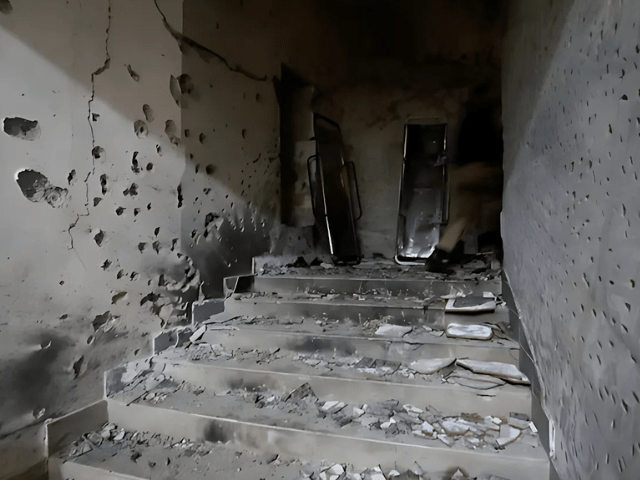Pakistan has been ranked as the second most affected country in the Global Terrorism Index (GTI) 2025, in which Tehreek-E-Taliban Pakistan (TTP) emerged as the world’s fastest growing terrorist organization, with a 90% increase in deaths associated with its attack.
Pakistan recorded his biggest increase this year to year in terror-related deaths in a decade, with deaths that rose 45% and attacks more than doubling from 517 in 2023 to 1,099 in 2024-over-over-overstorms 1,000 for the first time since the index’s start.
Global Terrorism Index (GTI) 2025 ranks 163 countries covering 99.7% of the world’s population, based on terrorist incidents, deaths, injuries and hostage situations.
The number of countries affected by terrorism increased from 58 to 66 and turned almost a decade of improvements in which 45 nations deteriorated. The four deadliest terrorist groups-Daesh, Boko Haram, Al-Shabaab and TTP bread an increase of 11% in death. In the West, lonely-wolf attacks are now dominating and accounting for 93% of deadly events in the last five years.
The GTI report highlights TTP’s expanding influence, especially in Pakistan and Afghanistan, with 558 dead the group is attributed to the group alone in 2024.
Founded in 2007, TTP is a coalition of militant factions dealing with a rebellion against Pakistan’s government that advocates strict Sharia law and withdrawal of military forces from tribal areas. With long-term ties to al-Qaeda, the group has intensified attacks on security forces, civilians and government installations. Experts warn that Taliban’s control in Afghanistan has given TTP a safe port, allowing it to expand its operations across the Pak-Afghan border.
The group has intensified attacks on Pakistani security forces, civilians and government installations, while also targeting the Pak-Afghan border area.
Experts warn that TTP’s resurgence has been activated by Taliban’s control in Afghanistan, allowing the group to use Afghan territory as a safe haven for planning and launching attacks.
Terrorism -Tenses: Global Wave In Attack
The GTI 2025 reveals that the number of countries affected by terrorism increased from 58 to 66 in the past year and turned almost a decade of decline. The main findings include:
- The Sahel region remains the global episent of terrorism, with Burkina Faso registering the highest number of deaths worldwide.
- Daesh remains the deadliest terrorist organization responsible for 1,805 deaths in 22 countries.
- Terrorist attacks in Western countries increased by 63%, with lonely wolf attacks accounting for 93% of all deaths.
- Iran saw an increase in terror-related deaths, primarily due to attacks by Daesh Khorasan Province (ISK).
Western nations face growing security challenges
While terrorism remains heavily concentrated in conflict zones, the West has seen an increase in attacks by radicalized individuals. Countries such as Germany, Sweden and Australia registered their first major terrorist incidents this year.
A remarkable trend is the rising involvement of minors in terrorist activities. In Britain, during the 18s, 42% of terror-related arrests last year, reflecting a broader shift against online radicalization via social media, encrypted messaging apps and game platforms.
Regional instability burns extremism
The Middle East and North Africa (Mena) region recorded a 7% decrease in terrorist attacks, but escalating tensions in Gaza and Syria continue to create instability. The Israeli War against Palestine has been linked to an increase in anti -Semitic and Islamophobic events in the West, with hate crimes that increase sharply in the United States and Europe.
In South Asia, Pakistan and Afghanistan remain major hotspots for terrorism. Taliban’s governance in Afghanistan has characterized TTP and ISK, where both groups increase their attacks in the region.
A changing terror landscape
The GTI 2025 emphasizes the evolving nature of terrorism, where groups quickly adapt to new technologies using AI-enhanced propaganda, encrypted communication and cryptocurrency for financing. The emergence of lonely wolf attacks in the West and the resurgence of extremist groups in conflict zones constitutes continuous security challenges for global politicians.
As TTP expands its activities, its growing influence in Pakistan and Afghanistan remains a key problem for regional stability and raises urgent questions about how governments will respond to the evolving panty landscape.



